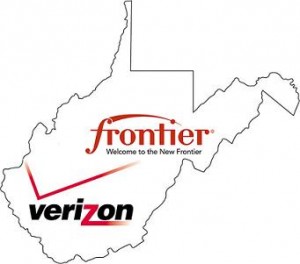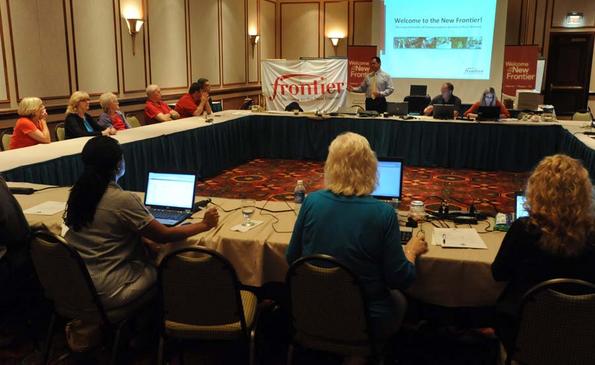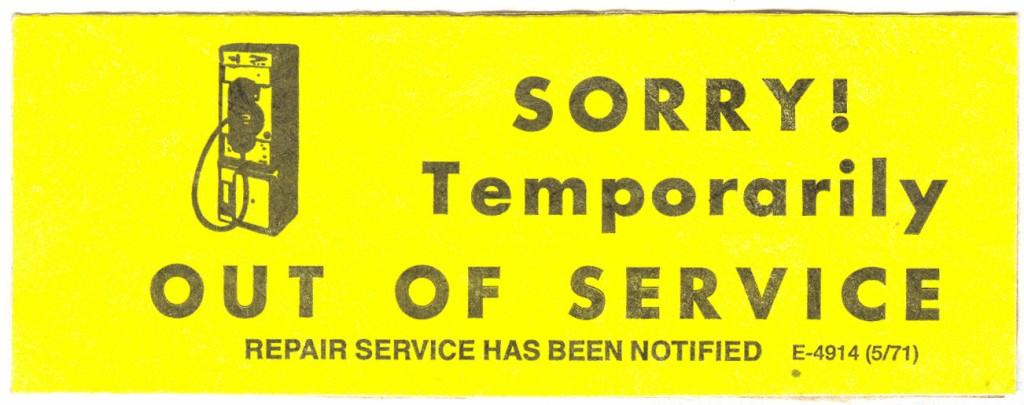 One month after Frontier Communications took over phone service from Verizon Communications in West Virginia, unresolved problems over West Virginia’s telephone system continue to mount, leaving one sheriff’s department using Facebook to communicate with some residents and a renewed call for an investigation over Frontier’s poorly functioning “Operational Support System.”
One month after Frontier Communications took over phone service from Verizon Communications in West Virginia, unresolved problems over West Virginia’s telephone system continue to mount, leaving one sheriff’s department using Facebook to communicate with some residents and a renewed call for an investigation over Frontier’s poorly functioning “Operational Support System.”
One serious problem is in Wetzel County, where the local sheriff’s office faces trouble from disruptions to their call management system that began July 1st, the date Frontier switched over operations from Verizon Communications. Calls that are intended to reach individual officers’ direct extensions or voicemail are instead being diverted into a black hole, as callers are told they will be transferred to an operator that does not exist.
The result of the ongoing, month-long problem is that individual residents are unable to reach officers except through the county’s Facebook page and website. Emergency calls to 911 are not affected, but calls transferred from 911 to the sheriff’s office are.
Despite weeks of back and forth, Frontier is blaming an outside vendor for the problem, claiming the sheriff’s office needs to order a “part” to repair the all-digital call management system. That doesn’t seem to impress Wetzel County Sheriff James Hoskins, who wonders why the problem suddenly started the same day Frontier switched away from Verizon’s systems. Additionally, voicemail messages saved on Verizon’s old system are no longer accessible to the department.
Meanwhile, other service disruptions continue to pile up across the state, along with consumer and business complaints at the Consumer Advocate’s Division of the Public Service Commission. Things have deteriorated so much, the state’s Consumer Advocate Byron Harris is asking the Commission to hold hearings on Frontier’s poor performance in the state.
Harris told MetroNews the problems have gone beyond glitches.
“In any transition between companies, there are always going to be some glitches, but this has gotten past the point of glitches,” Harris said.
FiberNet uses Frontier’s landline network and, last week, that company asked for a similar review. FiberNet officials say their customers have been experiencing many problems since the change at the beginning of the month.
“At the Consumer Advocate’s Division, we’ve also noticed a significant increase in complaints, across the board, all types of complaints from customers,” he said.
Harris says customers that are having problems are, in some cases, also finding it difficult to get in touch with anyone with Frontier to report their issues.
But Frontier Spokesperson Brigid Smith says it’s impossible to completely avoid all such problems.
“We are 30 days into a very, very large change which, by and large, has gone very well,” Smith told MetroNews.
“There have been glitches. We have taken accountability for those. We are trying to fix a system that has been sorely neglected and we are very, very committed to the state.”
 Stop the Cap! reader Janel from Huntington thinks that excuse is becoming the equivalent of a broken record.
Stop the Cap! reader Janel from Huntington thinks that excuse is becoming the equivalent of a broken record.
“Frontier can’t help but tell people here over and over and over how great of a job they’re doing and how well the transition went,” she writes. “But there are a whole lot of people who disagree — they just don’t happen to work for Frontier.”
Janel’s cousin lost his DSL service for nearly a week after the transition and after repeated calls to customer service finally learned the company lost his records.
“They deactivated his account and their customer service people, when they bothered to answer, were about as useful as a car in a ditch,” she notes. “They had no record he even had an account and thought he was served by some other company, despite having a phone bill he was willing to fax them showing he had their DSL service.”
Frontier eventually “re-established service” after re-entering his customer information and reauthorized the DSL modem.
Frontier’s unionized employees facing enormous overtime demands are perhaps the best evidence Frontier continues to experience serious transition issues.
Frontier used a provision in its union contract with the Communications Workers of America to demand 70-hour workweeks for many Frontier service technicians working in West Virginia, declaring an “emergency and long term service difficulty.”
With an extremely hot summer underway, line technicians are facing long hours in 90 degree plus weather repairing lines Verizon neglected for years. Transition issues are also being blamed for long overtime hours as Frontier works its way through a large number of unresolved support requests.
[flv]http://www.phillipdampier.com/video/WTRF Wheeling Major Concerns With Phone Line at Wetzel County Sheriff’s Office 7-31-10.flv[/flv]
WTRF-TV in Wheeling, W.V., reports on the concerns of the Wetzel County Sheriff’s Office, which is still without properly working phone service a month after Frontier Communications took over phone service in the state. (3 minutes)


 Subscribe
Subscribe





